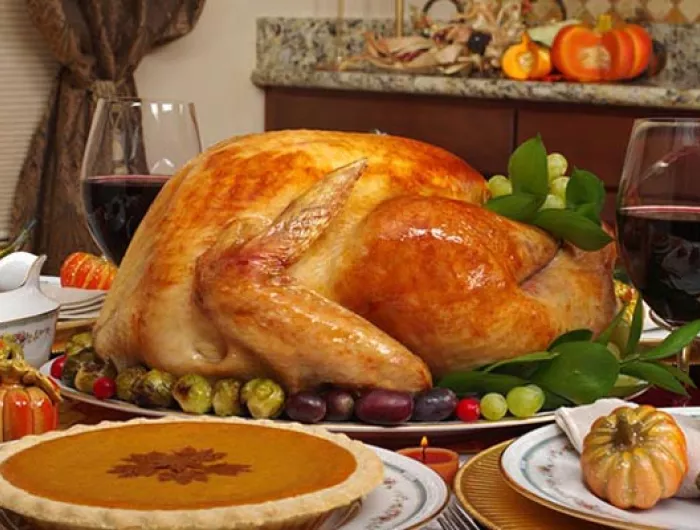Tips for thawing, storing, and cooking a Thanksgiving turkey (plus sides)

If you're serving turkey this year, we have shopping tips and advice to safely prepare and cook yours.
Buying frozen? How to properly thaw:
Turkey, or any other meat, should never be defrosted on the counter. The safest way to thaw your turkey is in the refrigerator, so plan ahead: Turkeys need approximately 24 hours for each 4 to 5 pounds of weight. Put the bird on a plate, to catch any liquid as it thaws.
Once thawed, cook your bird within 1 to 2 days or refreeze.
Is it safer to rinse off the turkey before cooking?
Nope. Water can splash bacteria from the raw turkey onto countertops, other food, towels, and you. It’s best to transfer the turkey straight from package to pan. The heat from cooking will kill any bugs.
Cooking your turkey
A few tips:
- Only cook a turkey once it's completely thawed.
- Your oven temperature should never be lower than 325°F.
- Use a food thermometer (not just a pop-up thermometer on the turkey) in the innermost part of the thigh and wing, the thickest part of the breast, and in any stuffing. The thermometer should read at least 165°F.
Planning ahead? These are approximate cooking times for turkey, but use the thermometer to check when yours is done:

For a higher-quality roast, let the turkey stand for 20 minutes to allow the juices to set. The bird will also carve more easily.
Cooking stuffing safely
The safest way to cook stuffing is on the stove or in the oven—separate from the turkey.
If you cook the stuffing inside the bird, loosely stuff the turkey just before you put it in the oven, with three-quarters of a cup of stuffing per pound of turkey. Use a food thermometer to make sure the center of the stuffing reaches 165˚F.
Cleaning up after the meal
Refrigerate or freeze leftovers promptly. Turkey and all perishable foods (like salads, sides, etc.) should be left out for no more than 2 hours.
Why? Leaving cooked food at room temperature is an invitation for bacteria that can cause food poisoning—like Clostridium perfringens and Staphylococcus aureus—to multiply. And reheating the leftovers won’t destroy their toxins or spores.
Sources: CSPI, USDA’s Washing Food: Does it Promote Food Safety?; Turkey from Farm to Table.

